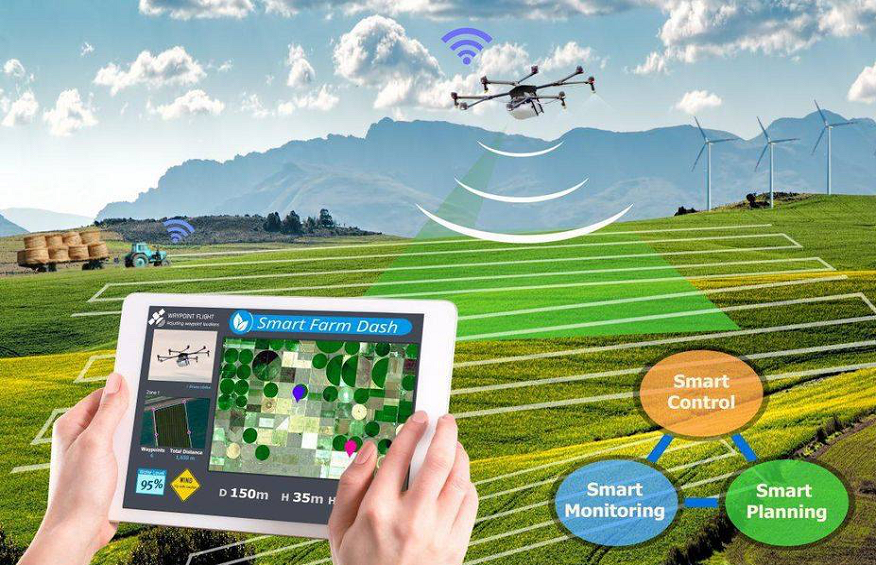
Digitalization begins at the root of agriculture, the farms themselves. Sensors embedded in soil, weather stations, and equipment collect valuable data on soil moisture, temperature, and crop health. This data is then analyzed to provide insights that guide planting, irrigation, and harvesting decisions. By optimizing these processes, farmers can enhance crop yields and reduce resource waste.
In the modern age of agriculture, digitalization has emerged as a transformative force, reshaping traditional supply chain management practices. By harnessing the power of data and analytics, the agricultural industry is optimizing its supply chains in ways that were previously unimaginable. This shift is revolutionizing how farmers, distributors, and consumers interact with the agricultural ecosystem.
Precision Agriculture: Navigating Fields with Data-Driven Precision
Precision agriculture is a direct outcome of digitalization. Farmers utilize satellite imagery, GPS, and drone technology to create detailed field maps that highlight variations in soil quality and crop growth. Armed with this information, they can apply fertilizers, pesticides, and irrigation with pinpoint accuracy, leading to more efficient resource utilization.
Real-Time Monitoring for Timely Interventions
With digital tools, farmers can monitor their fields and livestock in real time. This enables them to detect issues like pest infestations, disease outbreaks, or adverse weather conditions promptly. Such timely interventions prevent losses, reduce the need for excessive chemical use, and support sustainable farming practices.
Smart Warehousing and Distribution: Optimizing Logistics
Digitalization extends beyond the fields into warehousing and distribution. Smart technologies such as RFID tagging, barcoding, and inventory management software streamline the tracking and movement of agricultural products. This enhanced visibility minimizes stockouts, reduces excess inventory, and ensures fresher products reach consumers.
Demand Forecasting and Consumer Insights
Data analytics doesn’t just benefit farmers; it also provides valuable insights to distributors and retailers. By analyzing historical sales data and consumer preferences, supply chain partners can accurately forecast demand. This enables them to stock the right products in the right quantities, minimizing wastage and optimizing sales.
Sustainability at the Core: Minimizing Environmental Impact
One of the most significant advantages of digitalization is its contribution to sustainable agriculture. Through data-driven decisions, farmers can optimize resource use, reduce chemical inputs, and implement conservation practices. This not only benefits the environment but also aligns with the growing consumer demand for responsibly sourced products.
Challenges and Considerations
While digitalization offers immense potential, there are challenges to navigate. Data security, privacy concerns, and the digital divide in rural areas must be addressed. Additionally, there’s a learning curve associated with adopting new technologies, which requires training and support for farmers.
agriculture supply chain solutions, digitalization is reshaping agriculture from the ground up, offering unprecedented insights and opportunities for optimization across the entire supply chain. By harnessing data and analytics, the industry is not only improving efficiency and profitability but also contributing to a more sustainable and resilient agricultural future.

